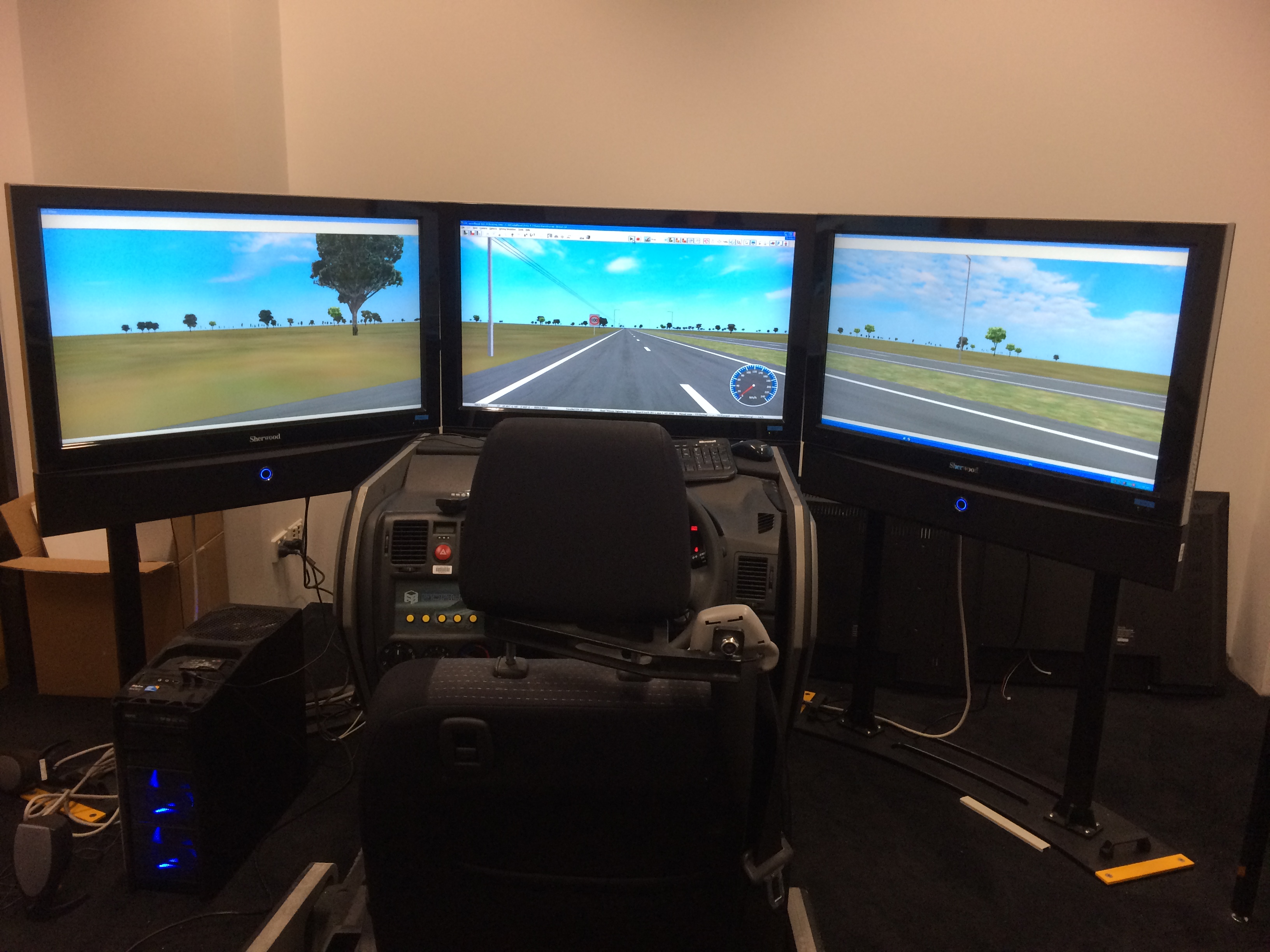Swinburne researchers investigate effects of medicinal cannabis on drivers

The study will be conducted on-site at Swinburne's driving simulator facilities within the Drugs and Driving Research unit.
In summary
- Dr Amie Hayley and Professor Luke Downey from Swinburne’s Drugs and Driving Research Unit have received funding from the federal government’s Road Safety Innovation Fund
- This study will be the first to use innovative technologies to examine the effect of medicinal cannabis products available in Australia on driving ability
- As medicinal cannabis becomes increasingly available, the researchers say solutions to identify and reduce cannabis impaired driving are urgently needed to promote traffic safety
A Swinburne study into the effects on medical cannabis on driving ability has received $345,951 in funding from the federal government’s Road Safety Innovation Fund. Led by Dr Amie Hayley and Professor Luke Downey from the Centre for Human Psychopharmacology, it will also investigate how we can use technology to measure driving impairment.
The study is the first of its kind and will be conducted within Swinburne’s Drugs and Driving Research unit, which is led by Professor Downey.
‘We are grateful for this grant, and especially for the opportunity to further our research in this space,’ says Professor Downey. ‘It is critical to quantify the potential risk these road users take when they get behind the wheel and develop methods to protect these vulnerable patients, as well as all road users.’
Filling a gap in knowledge
Many Australian consumers of medicinal cannabis access products that contain delta-9-tetrahydrocannabinol, better known as THC, which is a controlled drug under the Australian Poisons Standard, which provides a uniform approach to control the availability and accessibility of substances that can be used as ingredients in medicine.
‘A controlled drug is a medicine that may only be prescribed by an authorised healthcare professional. As of February 2021, over 100,000 special access permits for medicinal cannabinoid products has been approved, a large proportion of which contains THC,’ explains Dr Hayley, who is Principal Investigator for the study.
’There is no definitive legal, clinical or road safety recommendation as to the length of time that medicinal cannabis products can be detected, nor whether the use of these products contribute to increased risk of traffic collision,’ Professor Downey adds.
Using innovative technology
‘We will conduct a program of research that examines the use of innovative technology, such as driver monitoring systems, to protect vulnerable road users who may make the mistake of operating a vehicle when the medication is impairing their ability to control the vehicle,’ says Dr Hayley.
Driver monitoring systems monitor and detect a driver’s state and collect information to make an instant assessment about their capacity to drive safely. These technologies have already been highly effective in detecting and alerting drivers who are tired or distracted by creating a sound to reengage the driver.
‘Using our high-fidelity driving simulator and eye monitoring technologies, we will test the relationship between eye movements and driver behaviour to better understand the impact of medicinal cannabis use on driving performance in patients, as well as healthy adults,’ Professor Downey explains.
‘As medicinal cannabis becomes increasingly available, solutions to identify and reduce cannabis impaired driving are urgently needed to promote traffic safety. Through our research, we hope to uncover potential solutions to mitigate the risk of road trauma for these patients and all road users,’ says Dr Hayley.
Supporting road safety
The Road Safety Innovation Fund is awarded by the federal government’s Office of Road Safety.
The fund supports innovative projects designed to reduce the number of deaths and serious injuries on Australian roads and help create a safe and sustainable road transport system for everyone. Priority areas include improving road safety in regional and remote areas, reducing driver distraction and drug driving, improving safety for vulnerable road users and supporting road safety research and initiatives specific to the Australian context.
-
Media Enquiries
Related articles
-

- Technology
- Health
New MedTechVic prototypes to transform everyday lives of people with a disability
Swinburne’s MedTechVic has revealed three new prototypes designed through the joint Health-led Manufacturing Innovation Program, in partnership with the Australian Medtech Manufacturing Centre and Safer Care Victoria
Friday 19 July 2024 -

- Health
- Education
Dissociation is a common trauma response among many who seek therapy, but only one in five psychologists can accurately identify symptoms
New Swinburne research has found that four in five Australian psychologists have gaps in their knowledge on dissociation and cannot accurately identify dissociation symptoms.
Friday 21 June 2024 -

- Health
- Technology
Clinical Innovation Fellowships develop creative solutions to Australia’s healthcare challenges
MedTechVic is gearing up to begin its fourth year of the Clinical Innovation Fellowship Program (CIFP), following the highly successful third round in 2023.
Wednesday 19 June 2024 -

- Social Affairs
- Health
Swinburne leads world-first medical cannabis driving trial
Swinburne researchers are spearheading a world-first trial to evaluate whether patients can drive safely while on prescribed medical cannabis
Tuesday 28 May 2024 -

- Social Affairs
Swinburne is committed to reconciliation “Now More Than Ever”
Swinburne held events across our three campuses to mark National Sorry Day and National Reconciliation Week.
Friday 31 May 2024

